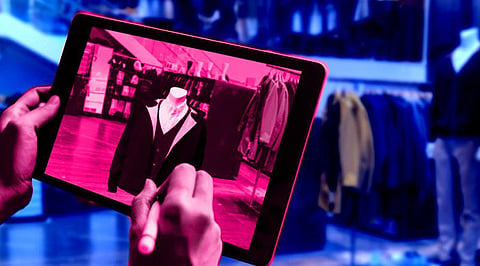

Artificial intelligence (AI) has swept through a variety of industries, with the potential to disrupt organizations through innovative technology, more efficient operational processes, and access to consumer and industry data.
In an industry built on creativity and expression, fashion executives initially did not find AI automation to be interesting to use. In contrast to rivals who use conventional approaches, these applications can alter firms and produce considerable industry growth and revenues as we reach the hyper-digital age.
AI fashion design solutions have somehow been overlooked. They do, however, have a huge amount of potential for a sector that is quickly automating its development and presentation processes both now and, most likely, in the future. Why is creative AI so underutilized, and what new opportunities do they present for businesses and designers?
The initial applications of AI have emphasized quantifiable commercial requirements. Creativity is far more difficult to measure and much more prone to lag. But as more researchers create fresh models for creativity, the technology's potentials become increasingly clear. The best buddies of fashion designers may soon be AI models.
It's impossible to escape it when so many online stores use images to persuade us to buy, yet don't necessarily give a true-to-life representation of a garment.
By bridging the disparity between the experiences of online and in-store purchases, AI-enabled technologies like augmented reality (AR) and virtual reality (VR) are now attempting to address the aforementioned issue.
Think about the following instance: While taking a stroll, you come across a person wearing the most exquisite clothing you have ever seen. You desire what they have on, but you are unsure of the brand or where to purchase it. You can look for your new favorite outfit online, but you'll just find a few largely irrelevant results and get no further.
Some AI-enabled apps let users capture photos of online clothing, identify shoppable items in the image, find a matching outfit, and shop for related styles.
To succeed in business, personalization is necessary. A lot of client data is available to be accessed and analyzed as a result of significant data innovation. Deep learning technologies, such as AI and ML, allow fashion companies to track the purchasing patterns of specific clients when combined with business data.
Marketers are increasingly using information and computational abilities to advance technology to understand consumer expectations and shape the consumer experience based on purchases, favourite colours, textures, and other style preferences.
Detecting fashion forgeries and counterfeit goods also use computer vision driven by ML. Previously, spotting fakes needed the trained eye of experienced customs agents or other law enforcement professionals.
AI systems can now detect when fake goods resemble genuine goods more closely. AI technology is being used by customs and border authorities to assist them to identify the authenticity of expensive goods that are frequently imitated, such as handbags and sunglasses.
Ordinary consumers may find it challenging to identify fake goods when browsing huge online markets run by third parties. When a customer purchases a product that seems reliable but doesn't work well, it may leave them with a negative impression of the company.
Join our WhatsApp Channel to get the latest news, exclusives and videos on WhatsApp
_____________
Disclaimer: Analytics Insight does not provide financial advice or guidance. Also note that the cryptocurrencies mentioned/listed on the website could potentially be scams, i.e. designed to induce you to invest financial resources that may be lost forever and not be recoverable once investments are made. You are responsible for conducting your own research (DYOR) before making any investments. Read more here.
